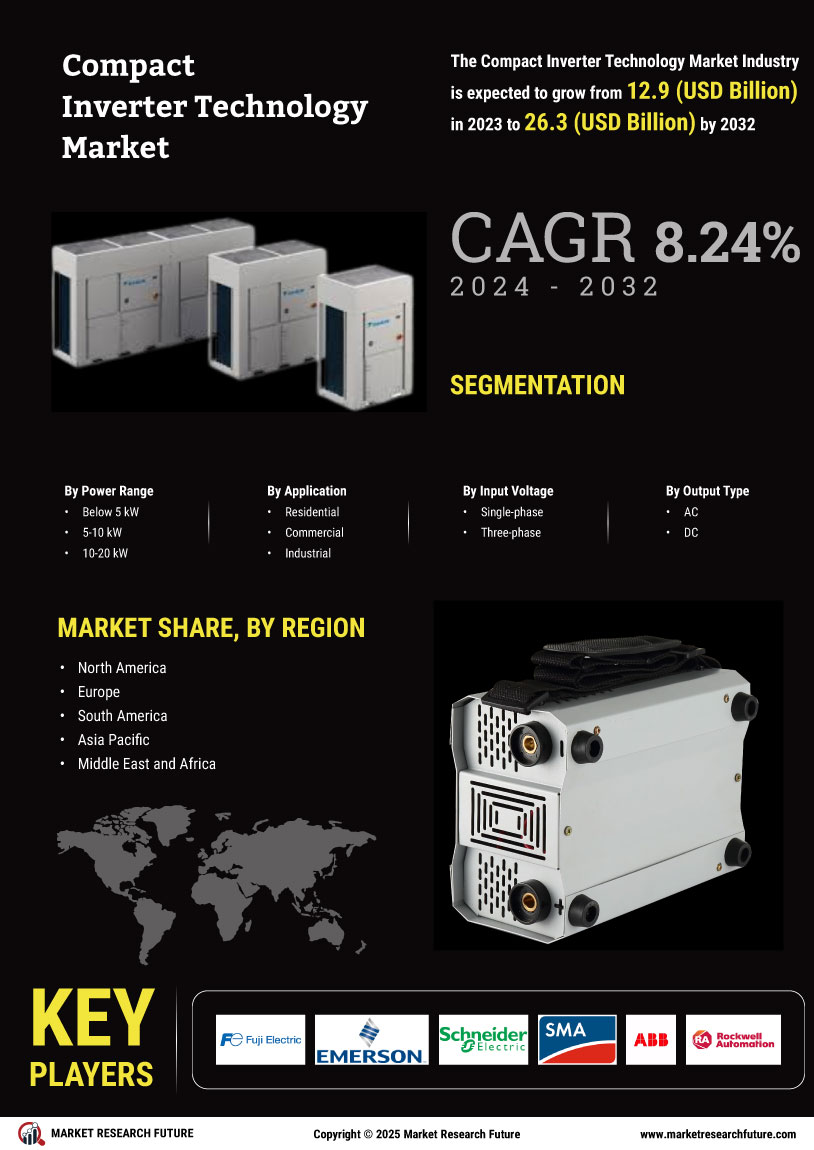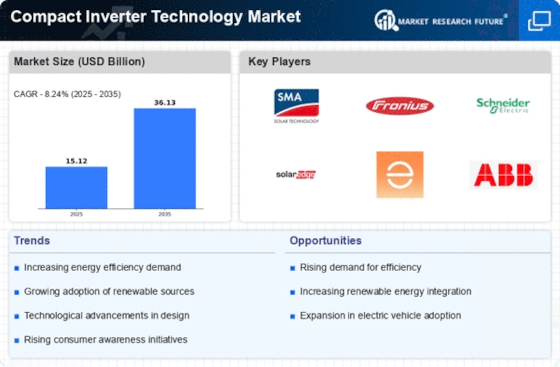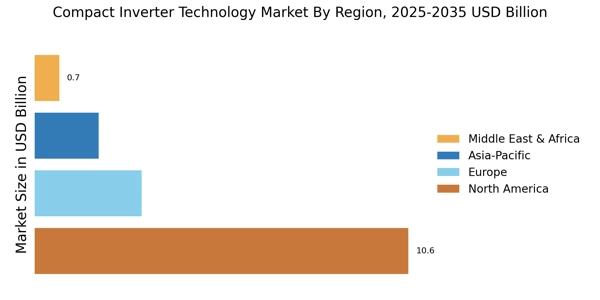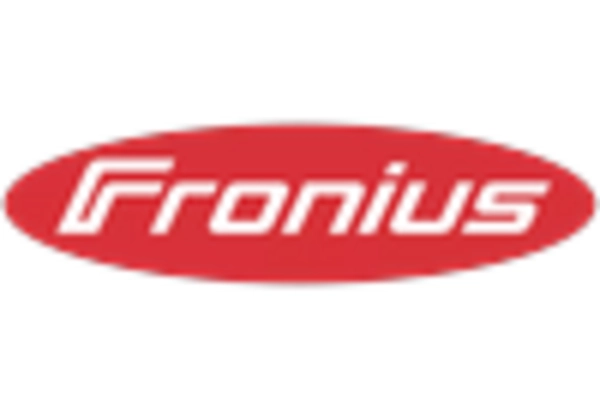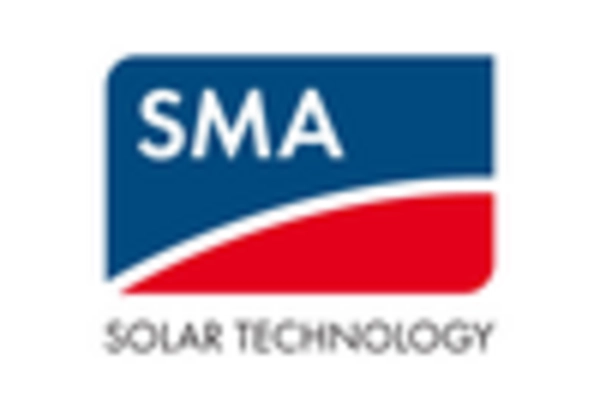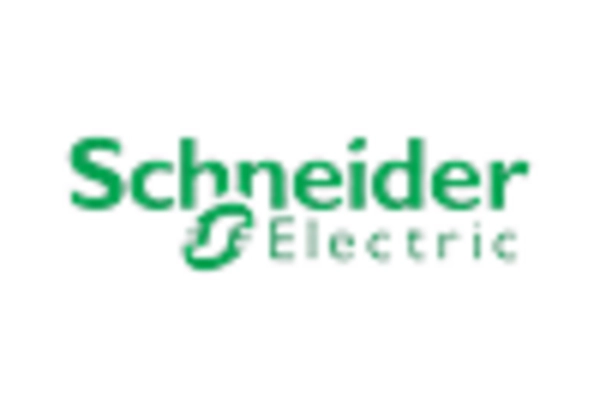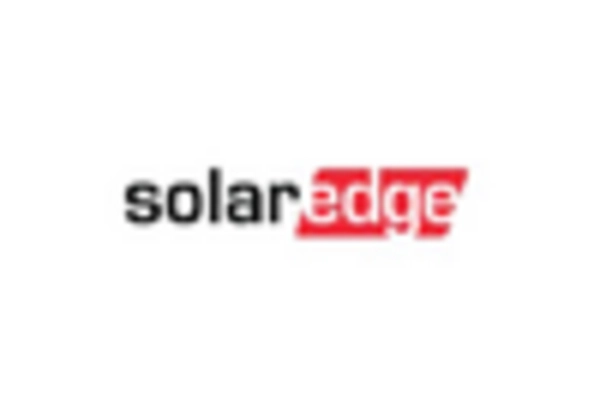Rising Demand for Energy Efficiency
The Compact Inverter Technology Market is experiencing a notable surge in demand for energy-efficient solutions. As energy costs continue to rise, consumers and businesses alike are increasingly seeking technologies that minimize energy consumption while maximizing output. This trend is particularly evident in sectors such as residential and commercial buildings, where energy efficiency regulations are becoming more stringent. The Compact Inverter Technology Market, known for its ability to optimize energy use, is well-positioned to meet these demands. According to recent data, the energy efficiency market is projected to grow at a compound annual growth rate of over 10% in the coming years, indicating a robust opportunity for compact inverters to play a pivotal role in energy management strategies.
Increased Focus on Sustainable Practices
The Compact Inverter Technology Market is witnessing a heightened focus on sustainable practices across various sectors. Organizations are increasingly prioritizing sustainability as part of their operational strategies, leading to a greater emphasis on technologies that reduce carbon footprints. Compact inverters, which facilitate the efficient conversion of energy from renewable sources, are becoming essential in this context. The push for sustainability is not only driven by regulatory requirements but also by consumer preferences for environmentally friendly products. As a result, the market for compact inverters is projected to expand significantly, with estimates indicating a potential growth rate of around 8% annually as businesses seek to align with sustainability goals.
Integration with Smart Grid Technologies
The integration of Compact Inverter Technology Market with smart grid systems is emerging as a critical driver in the Compact Inverter Technology Market. Smart grids facilitate improved energy distribution and management, allowing for real-time monitoring and control of energy resources. This integration enhances the functionality of compact inverters, enabling them to communicate effectively with other grid components. As smart grid adoption accelerates, the demand for compact inverters that can seamlessly integrate into these systems is expected to rise. Market analysis suggests that the smart grid technology sector is anticipated to reach a valuation of several billion dollars, further propelling the need for advanced inverter solutions that support this infrastructure.
Advancements in Battery Storage Technologies
The Compact Inverter Technology Market is significantly influenced by advancements in battery storage technologies. As energy storage solutions become more sophisticated, the need for compatible inverter systems that can efficiently manage and convert stored energy is paramount. Compact inverters are increasingly being designed to work in tandem with advanced battery systems, enhancing their overall performance and reliability. This synergy is particularly relevant in applications such as electric vehicles and renewable energy systems, where efficient energy management is crucial. Market forecasts indicate that the battery storage market is set to grow exponentially, which will likely drive demand for compact inverters that can optimize energy flow and storage capabilities.
Regulatory Support for Renewable Energy Initiatives
The Compact Inverter Technology Market is benefiting from robust regulatory support for renewable energy initiatives. Governments worldwide are implementing policies and incentives aimed at promoting the adoption of renewable energy sources, which in turn drives the demand for compact inverters. These regulations often include tax credits, rebates, and grants for renewable energy projects, making it financially attractive for consumers and businesses to invest in compact inverter technology. As more countries commit to reducing greenhouse gas emissions and transitioning to cleaner energy sources, the market for compact inverters is expected to flourish. Projections suggest that the regulatory landscape will continue to evolve, further enhancing the growth prospects for the compact inverter sector.
